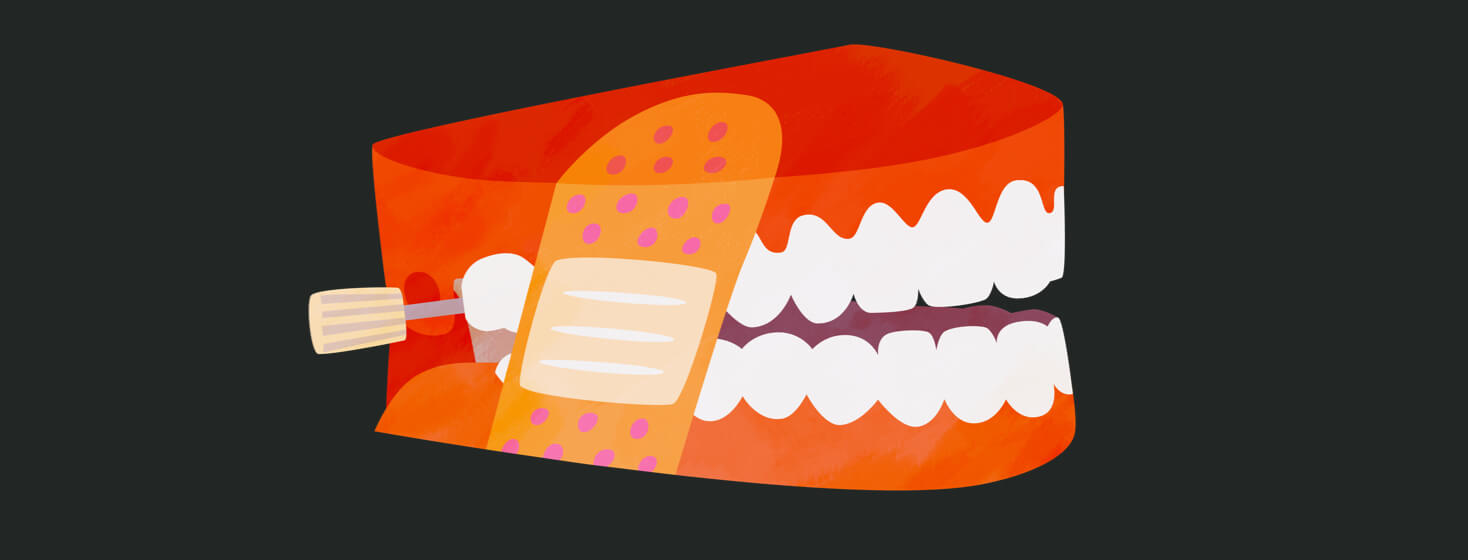The Daily Grind of Caring For Your Jaw
My house is filled with equipment to help care for my joints. I have compression socks and gloves for when I'm swollen, foam rollers for my tight tendons, and pillows to help position my hips while sleeping or resting. I have more than enough tools to help my knees, back, and hands. Yet, while my jaw is sometimes my most painful joint, I only have one tool to improve it: my retainer.
Psoriatic arthritis can affect my jaw?
Psoriatic arthritis can affect any joint, including your jaw (or TMJ). It can cause pain, stiffness, and swelling. Unfortunately, it can be hard to cope with the pain and treat it due to its location, especially if it flares. For that reason, it's always good to give your jaw a little extra TLC.
It's said that an ounce of prevention is worth more than a pound of cure. While keeping up with your usual arthritis treatments are critical, such as using medication, joint injections, or even acupuncture, it's also a good idea to take care of your TMJ daily. You can take some extra measures to help keep your jaw in good shape day-to-day:
Stretch
It's essential to exercise any joint with PsA to prevent it from getting too stiff or weak. Your jaw is no different! It needs to be stretched and worked in ways that won't irritate it.
You can ask for a list of exercises from your rheumatologist or dentist to try out. Many of them involve opening as wide as you can and moving your jaw around. There may be some resistance exercises, where you push your jaw against your hands. These can be painful but very helpful.
Unclench
A lot of people with PsA struggle with joints that want to contract. For example, some people have to wear splints at night to keep from painfully balling up their hands. Someone with TMJ pain may wear a retainer or nightguard to prevent extra pain and damage from grinding or clenching your teeth at night. My retainer has been a savior for me--I wake up so much more refreshed and in less pain than I do on the nights I don't wear it.
But grinding and clenching aren't exclusive to nighttime. I clench my teeth all the time, especially if I'm stressed or concentrating at work. I also clench when I'm in a lot of pain or flaring--it's a natural reaction, but it makes the situation worse.
Try to recognize the situations you're in when you tense, and remind yourself to loosen up as much as possible. Open your mouth as wide as you can comfortably every so often. Try to stand up straight, and not strain your neck too much- this can make the pain and tightness even worse. It's a simple but helpful way to avoid extra pain.
Rest
Finally, it's vital to give your jaw a rest when it's tired and painful. Avoiding talking or singing is hard, but helps reduce the strain. It's also a good idea to avoid putting pressure on your mouth, like when you rest your chin on your hand.
I think the hardest time to rest my jaw is when I'm hungry. I have an awful habit of scarfing food because I want to feel full and satisfied without the pain of sitting to eat a large meal. But eating frequent, small meals helped the most when I'm in a fare. So is choosing foods that don't require numerous, big bites and don't need a lot of chewing.
Drinking more substantial drinks can also help you cope with a loss of calories and feeling hungry. I drank a lot of milk during my worst flare, whether it was in my tea or coffee or even just a glass of milk.
Every effort counts
These are just a few ways I do my best every day to help care for my jaw. But there are more things you can do! Some people feel comforted by using ice or warm compresses. Other people may need more aggressive treatment to stay comfortable. You need to do whatever you, your physician, and your dentist agree are the right treatment options for you.
Has psoriatic arthritis affected your jaw? What do you do to help ease the pain? Share in the comments below!

Join the conversation